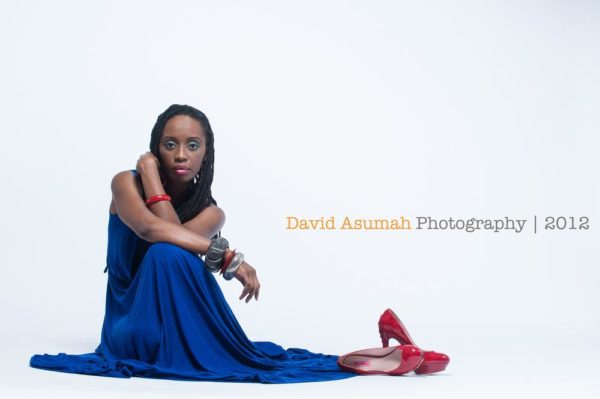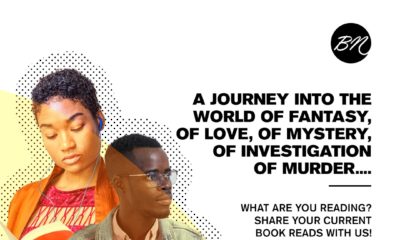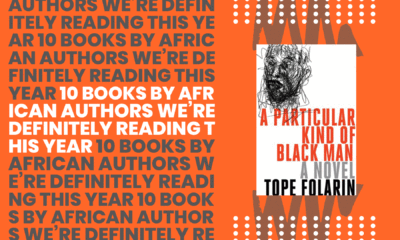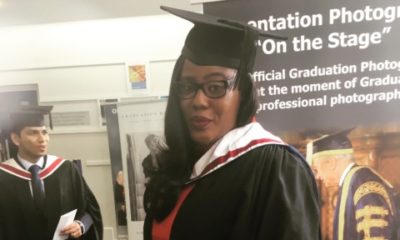Career
Move Back To Nigeria: Bursting With Creative Juices, Bassey Ikpi Speaks on Amazing Nigeria & the Challenges Experienced
 Move Back to Nigeria is a series on BellaNaija which aims to encourage young and not-so-young professionals in the diaspora who are trying to make the decision of whether to move back to Nigeria. In collaboration with the brilliant team at MoveBackToNigeria.com, we hope to bring you a weekly interview with individuals who have successfully made the leap, considering the leap, as well as those who have tried it and realized it is not for them.
Move Back to Nigeria is a series on BellaNaija which aims to encourage young and not-so-young professionals in the diaspora who are trying to make the decision of whether to move back to Nigeria. In collaboration with the brilliant team at MoveBackToNigeria.com, we hope to bring you a weekly interview with individuals who have successfully made the leap, considering the leap, as well as those who have tried it and realized it is not for them.
MoveBacktoNigeria.com’s mission is to showcase stories of Nigerians abroad who have moved back home and are taking giant strides, often against all odds and to serve as inspiration to others. This, however does not preclude us from sharing stories of the people who have moved back and are facing various challenges.
Bassey Ikpi, celebrated writer, poet and spoken word artiste is our special profile for the week. She moved back to Nigeria recently and now shares with us her sometimes poignant, sometimes challenging but always inspiring & interesting story. Read on for details of her certainly unique journey, in The US and now, in Nigeria. We hope you enjoy reading it.
Thanks for speaking with us. Can you please introduce yourself and tell us who you are and what you do?
My name is Bassey Ikpi. I am a writer, poet, spoken word artiste, TV presenter and producer.
When did you leave Nigeria and why?
I left Nigeria when I was 4 because my parents did. My dad was studying in the States and my mum and I had to go join him.
Did you go back to visit Nigeria again after you left?
I only went twice, the first was when I was about 12 and the other was when I was about 18.
Tell us about your educational background.
I attended the University of Maryland, Baltimore County to study English and American studies with a pop culture and writing influence. However, I actually didn’t finish, as I left and moved to New York in my final year.
So you left university to New York to become a writer, what made you decide on this course of action?
The truth is that, I just wasn’t happy. I know that we Africans especially Nigerians, do not typically put stock in what makes us happy. So we just do the ‘right thing’ and also do what you are supposed to do. But I just really wasn’t happy at all. I went to New York for a weekend and I liked the energy out there and liked been around other artistes. I also realized that all of my favourite writers and artistes were either from New York or had spent time in New York, so I just wanted to spend a couple of months there and return to school. That did not happen though as things picked up really quickly and I ended up staying.
Did you always know that you were artistically inclined and that this was what you were going to end up doing?
No, I didn’t know what it meant to be artistically inclined outside drawing or painting. I didn’t know and at that young age I didn’t know what it was. I was never really a science or mathematics person, though I’m fascinated by how things work, I’m just not interested in figuring it out myself. I always leaned more towards reading and writing. I learned to speak English late and I saw how words were used to communicate. To go from literally not understanding the world around you one day to being able to communicate with people the next. It taught me early the power of words and communication. Books drew me in because I saw how these letters, made words and words turned to sentences and created these ideas and stories. It was magical to me and I wanted to make magic. At the same time, I never realistically thought they were job options. I thought writers wrote and then had other jobs or professions. I didn’t know that writing was something you could get paid to do. So, even after getting to New York and I was told that you could do write as a profession, and you would get paid, I was shocked, albeit pleasantly so.
You mentioned that Nigerians and Africans generally put a lot of stock into doing what one is supposed to do as opposed to what makes you happy… when you decided to go to New York to follow your dreams as clichéd as that may sound, how did your family feel?
They actually didn’t know. I lied to them. I told them that I had an internship in New York for the summer and so, when it looked liked things were going well, I came home and told them I wasn’t returning to college. My mother particularly took it really, really badly. My father was worried and told me that the rule is we go to college, you get a post graduate degree and you work and you work till you die or at least until you’re done working. They did not have what and who to compare my decision to and they were worried that I would not amount to anything or at least be able to take care of myself. So, for a very long time, all their concerns drove me to prove myself and let them see the value of my choice.
And then you moved to New York, which sort of got your creative juices flowing. Please tell us about your New York experience and in particular, how your career took off?
It’s a crazy story which involves a lot of coincidental good fortune. What happened was that my arrival coincided with the summer and one day, I was seated at a cafe, talking to a friend that I wanted to stay in New York and that I didn’t have a job, I didn’t have a place to live, I didn’t want to stay in a friend’s house and then suddenly a guy in the café just turned around and said ‘I am going to Portugal in the next three days and I have been looking for somebody to sublet my apartment to on a short notice, I just put up a sign for it right around the corner, are you interested?’. I told myself that there is no way I can afford this and then he said it will only be just two hundred dollars a month. I stayed there for three months and at the end of the three months, it was time to return to school but I didn’t want to go back. New York was a part of me now and I wanted to stay and see what more I could become. One day, a friend called to invite me to lunch. I was sitting around feeling sorry for myself and I wanted more time to do that before I had to pack and leave. He insisted I come with him to a job interview and then we could go to lunch and figure out my next moves. I declined but got tired of feeling sorry for myself so I decided to get on the train and go to my favourite park. While on the train, that same friend got on and he said it was fate.
Now I had to accompany him to this interview. We got to the building of his interview and while waiting for the elevator, I started talking and cracking jokes with a man I assumed was a delivery guy. We got on the elevator and headed to the same floor laughing and joking the entire time. I wished him a good day and he went his way and I went to the waiting room to wait on my friend. A few minutes later, a tiny Ethiopian girl came and asked me if I was looking for a job. I was stunned because I was but why would she ask. Apparently, her boss was the guy in the elevator. He was the CEO of the company but dressed so casually. He was taken by my energy and spirit and wanted met o be part of the company. I was a miserable employ but they liked me so they kept me. And the Ethiopian girl, Maro, was looking for a roommate and we ended up sharing a flat for a few years. While I was at that job, I reluctantly accompanied a friend to a poetry contest organised by Def Jam. To cut the story short, I went to cheer him on but was told I couldn’t get into the audition unless I auditioned as well. I’d been writing poetry for years and performing in open mics quietly but never did anything really big. My friend encouraged me to enter as well. I performed successfully making it to the finals and eventually winning the entire contest. I was lucky but I was prepared too. That’s been my lesson throughout: you can be lucky and fortunate but if you’re not prepared, it won’t get you anywhere. It was after this that my career kicked off. That was when Def poetry jam came on about a year and half later.
So, moving on slightly, what is taking you to Nigeria, what has brought you back home?
Getting older now, I realize that there are a lot of things that I had wanted to do and I could not do because in the states, I was primarily a writer and it can be quite tough transitioning into another artistic genre. I had always wanted to work on television and I had done that when I was fifteen working as a presenter on a teen talk show on BET. I wanted to do two things in Nigeria: see what the spoken word scene was and also explore what I could bring to it. There are a lot of talented people here but there are also a lot of people who need a bit more training and experience. I’m here to create a wider platform for those folks to aspire to. Furthermore, when I came here, I found out that a lot of the content on television was imported e.g Nigerian idols, Nigeria’s Got Talent, Big Brother etc. there is little original content on the television so I wanted to see where I could fit in the landscape of Nigerian television and what I could offer. Believe me, the opportunities here are much more. There is a lot to get used to and adjusted to the ‘Nigerian way’ and that has been difficult but At the end of the day no matter how long I have been in the States, I’m Nigerian and so anything I have done there, I would like to do in Nigeria too.
How did you move, did you just get up and go and how have you found it?
I initially came back in 2012, I did Basseyworld Presents Naija Poetry Slam, the first National Poetry Slam competition. I met some wonderful people like Lydia of Taruwa fame. I also did my first magazine cover shoot. During that visit, I stayed for about three weeks and left. I came back in November, did some other events in Calabar for the carnival and then stayed for six weeks and came back to the states. I kept going and coming back, but when you go and come back like that, you would need to start all over again each time you return, so it was pertinent to stay behind. Especially once I realized what it was I wanted to do here and how I wanted to do it. So, when I came back last July, I decided with the help and support of my family to stay as long as
I needed to, to get things completely setup so that I could go home for a couple of weeks and still find things as solid as it is. I wanted to have my company up and running with no problems. I was encouraged by video director, Kemi Adetiba, to take the leap of faith and I’m grateful that I listened. I have been here for about seven months now and I am very home sick because I am very close to my family. At the same time, I have found a lot of strength here.
There are a lot of things that I want to do in Nigeria but it will be until I establish myself. It’s been a bit challenging at this stage in my life and career having to start all over again, but thankfully, I am finding a lot of support that I didn’t know I had, the people who have supported me and are still there supporting too. I have made good friends and great contacts too. Denrele Edun whom everyone knows has been very helpful here in Nigeria. My friend Ijeoma who has been like a sister to me and has helped me in ways I didn’t even know I needed. My business partner, Mimi, is in South Africa but I’m as much here for her and our business as anything else. My manager, Danny has been everything. He believes in me more than I believe in myself sometimes and trust me dealing with me is no easy feat. There are countless other people that have opened up their lives and given me so much love and helped fill that gap that I miss without my family. Obviously, there have been times when I just want to pack up and go home but the people I mention give me a lot of strength, love and support and enough ‘kick in the pants’ to keep me going.
Do you have a particular project you’re working on at the moment?
I do! Several but unfortunately I can’t speak about any of them because we haven’t begun production but I’m really excited to get started. The projects have all been so different but still under my company umbrella. That’s exciting to me because I get bored easily so, I like to be able to move amongst different things and still feel like I know what I’m doing.
And whilst you have been here, are there particular challenges you have faced that have made it difficult for you? If yes, how have you been able to manage the challenges?
There have been a few, mostly logistical. For instance, the power situation is horrid. It kills productivity. No matter how efficient you are, when they ‘take light’ and God forbid your batteries all die, that’s it. You can’t do any more work. Sure you can ‘on the gen’ but the noise drives me nuts. It’s a shame that in 2014, we are still discussing the power problems. That’s on a general level. On a personal level, trust is another issue for me and so, I’ve learnt to be a more discerning. I’ve also learnt to humble myself, particularly as I have been working without a steady income for some time and have learnt to welcome assistance. I receive graciously and also give back every single time and way I can.
On a more humorous note, it’s been quite difficult to eat the food. I don’t want to see another package of Indomie in my life. Yes, it’s delicious but my God I’m tired. I’m also used to eating all of the Nigerian food. My mother cooks it regularly and I’ve been eating it my whole life but not EVERY DAY, THREE TIMES A DAY! I would do anything for a smoothie or a spinach salad. I know it’s Oyinbo food but it’s what I’m used to. I just need more variety. If anything happens to me, they will say ‘she died of yam’. That’s how much of it I eat these days. But the food I’m used to is also very expensive here so unless I’m at a restaurant, then I make do.
On the whole, you seem to be adjusting well…
I am. Like I said earlier, I’ve had my challenges, also as I’m prone to clinical depression so if things are not working out, I have to do everything I can to keep myself positive. I’ve had some tough times but they pass and if they don’t, I know i can call someone who will come or at least talk me back to a place where I can deal with my health better.
I find this particularly important as Nigeria & Nigerians are not inclined to openly discuss mental health issues. Do you find it difficult getting support in this regard?
I’m very forthright about discussing mental health and mental wellness. I founded an NGO called ‘The Siwe Project’ which deals with this and it’s quite concerning the lack of awareness about this issue in our society. I do not shy away from discussing it and I realise that my voice is important in this discourse. I realise there’s a cultural aspect to it and there’s an element of shame involved, but like I say with this analogy ‘if you had a broken leg and your family told you to do nothing but pray for it to heal, would you do that? Or would you go seek medical attention? Why then is that the response to mental health illness? The difference between me and a ‘mad man’ on the streets is that I manage my illness. I have been very fortunate to have amazing support from family, from friends and people who are invested in my wellbeing. I offer that support to others when I can. Things get tough as I said earlier and I know that I’m prone to ‘broken brain’ but I am honest about my need for help and I make sure I get it. I take medication, I don’t have a doctor here in Nigeria but have access to them if needed, I surround myself with people and in environments that help alleviate stress. I just moved from a situation that was causing me unnecessary anxiety and stress that simple move has helped me tremendously. I’m much happier and much more relaxed and focused where I am now. I take it every day at at a time and most importantly, I let people help me. It’s important not to allow myself to isolate. In essence, a holistic approach to managing mental well being is the way forward.
Thank you for this very insightful information, it’s definitely very enlightening. And on a final note, do you have any words for people who might be considering a move back?
I would say, know yourself first: What situations you’re comfortable in, what you need to get by and make sure you have those things. Also, be ready to adapt to whatever circumstances you might face. It’s also useful to have a support system, people who would be there for you and help you adjust.
Don’t come back and hope to figure it out as you go along, make sure you know what you are coming to do and what exactly you want. Don’t wing it.
Nigeria is an amazing country. Nigerians are amazing people. Nigeria is also a very challenging country with challenging people and if you know that and give yourself a chance to love it and hate it almost simultaneously, you will be okay. Take the rose-colored glasses off and replace them with a pair of nice shades. The sun is a killer.
Many thanks for your time and best wishes moving forward.
______________________________________________________________________________________________________
The primary objective of MoveBackToNigeria.com is to connect Nigerian professionals with various opportunities in Nigeria, ranging from recruitment drives to information & support regarding relocation processes, financial & tax advice and much more. Move Back To Nigeria also features social interest topics such as what’s on, where to live, how-to survival tips and so on. Consistently engaging with and featuring Nigerian professionals in weekly interviews, Move Back To Nigeria regularly publishes social interest articles relevant to the general public. Everyone is welcome to their online discussions & fora and you are invited to air your views & suggestions on the topical and trending matters section. For more information and further inquiries, please contact [email protected].






















